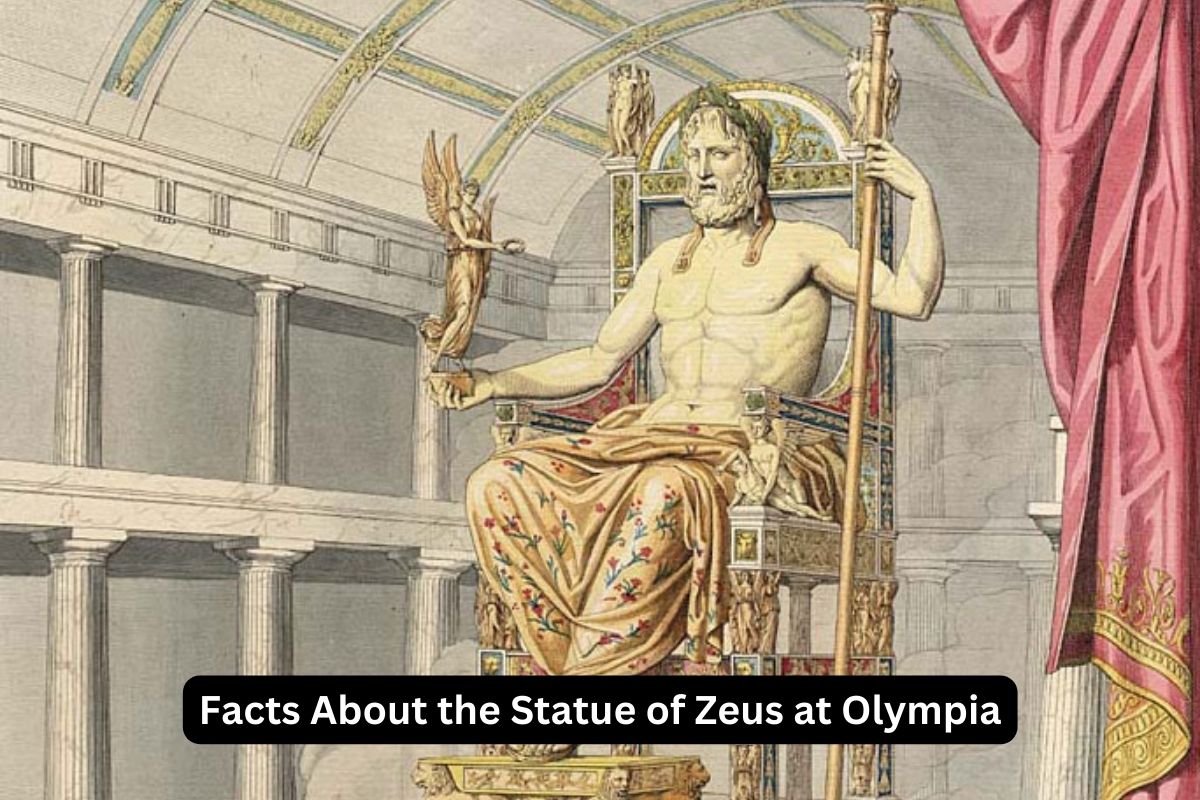Discovering The Mighty Zeus: 10 Fun Facts About The King Of The Gods
Zeus, the paramount deity in ancient Greek mythology, has captivated the imaginations of countless generations. As the ruler of Mount Olympus and the god of the sky, thunder, and lightning, Zeus embodies power and authority. His stories are brimming with intrigue, drama, and moral lessons, making him one of the most prominent figures in mythology. In this article, we delve into 10 fun facts about Zeus that reveal the complexity and depth of this legendary figure.
From his tumultuous family dynamics to his numerous romantic escapades, Zeus is not just a god of thunder; he is a character filled with contradictions. These facts not only highlight his significance in mythology but also illustrate how his legacy has permeated modern culture. So, buckle up as we explore the fascinating world of Zeus, the father of gods and men.
Whether you're a mythology enthusiast or simply curious about ancient tales, these 10 fun facts about Zeus will enlighten you and perhaps even inspire you to delve deeper into the rich tapestry of Greek mythology.
Who Was Zeus? A Brief Biography
Zeus, the son of Cronus and Rhea, was born on the island of Crete. He is known as the god of the sky and thunder, ruling over Mount Olympus where the other gods reside. He played a crucial role in overthrowing his father Cronus, who had swallowed his siblings. By rescuing them, he established a new order among the gods.
| Attribute | Details |
|---|---|
| Name | Zeus |
| Parents | Cronus and Rhea |
| Siblings | Hestia, Hera, Demeter, Poseidon, Hades |
| Spouse | Hera |
| Domain | Sky, Thunder, Law, Order |
| Symbols | Lightning bolt, Eagle, Oak tree |
What Are Some Interesting Facts About Zeus?
As the king of the gods, Zeus has many fascinating attributes and characteristics that make him a compelling figure in mythology. Here are 10 fun facts about Zeus:
- He Was a Child of Prophecy: According to prophecy, Zeus was destined to overthrow his father, Cronus, who feared losing his power to his own children.
- He Had Many Names: Zeus was known by various epithets, such as Zeus Olympios, Zeus Xenios, and Zeus Agoraios, each reflecting different aspects of his divinity.
- His Birth Was a Secret: To protect him from Cronus, Rhea hid Zeus in a cave on Crete, where he was nurtured by nymphs and fed honey and milk.
- Master of Disguise: Zeus was known for his ability to change form, often transforming into animals or other beings to seduce his lovers.
- God of Justice: Zeus was not only a god of thunder but also the god of law and order, often depicted as a figure who upheld justice.
- His Thunderbolt: The iconic thunderbolt is a symbol of his power, forged by the Cyclopes during the Titanomachy, the war between the Titans and Olympians.
- He Wasn't Faithful: Zeus had numerous affairs and relationships with both goddesses and mortal women, leading to many offspring, including heroes like Hercules.
- He Resided on Mount Olympus: Zeus ruled from Mount Olympus, where he presided over the other gods and goddesses, making decisions that affected both divine and mortal realms.
- His Sacred Animals: Zeus was associated with the eagle, which became a symbol of strength, and the oak tree, which represented stability and endurance.
- His Legacy Endures: The myths of Zeus have had a lasting impact on literature, art, and popular culture, influencing countless works throughout history.
What Role Did Zeus Play in Greek Mythology?
Zeus was not just a ruler; he was the arbiter of fate and justice among the gods and mortals. He played a central role in numerous myths, often intervening in human affairs to maintain order or punish transgressions. His thunderbolt was a tool of both destruction and protection, used to uphold justice or deliver divine wrath.
How Did Zeus Influence Later Cultures?
The influence of Zeus extended beyond ancient Greece. In Roman mythology, he was equated with Jupiter, the king of the gods. His image and symbolism can be found in various cultures, where he is often depicted as a powerful, authoritative figure. Modern references to Zeus appear in literature, films, and art, showcasing his enduring legacy.
What Lessons Can We Learn from Zeus?
The myths surrounding Zeus are rich with moral lessons and insights into human nature. They remind us of the complexities of power, the importance of justice, and the consequences of our actions. Zeus's relationships with other gods and mortals also highlight themes of loyalty, betrayal, and redemption, offering timeless wisdom for contemporary society.
Conclusion: Why Is Zeus Still Relevant Today?
Zeus remains a powerful symbol in modern culture, representing authority, justice, and the tumultuous nature of power. The 10 fun facts about Zeus illustrate not only his significance within mythology but also his relevance in our understanding of human behavior and societal norms. As we continue to explore the myths of ancient Greece, Zeus stands out as a compelling figure whose stories resonate across the ages.
Unveiling The Wealth Of Cedric The Entertainer: How Much Is He Worth?
Unleashing The Dark Side: The Intriguing World Of Star Wars Female Sith
Creative Ways To Administer The Best Punishment For Friends


